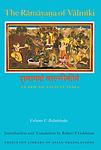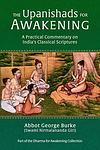The Greatest Nigerian, Indian Books of All Time
Click to learn how this list is calculated.
This list represents a comprehensive and trusted collection of the greatest books. Developed through a specialized algorithm, it brings together 300 'best of' book lists to form a definitive guide to the world's most acclaimed books. For those interested in how these books are chosen, additional details can be found on the rankings page.
Genres
Countries
Date Range
Reading Statistics
Click the button below to see how many of these books you've read!
Download
If you're interested in downloading this list as a CSV file for use in a spreadsheet application, you can easily do so by clicking the button below. Please note that to ensure a manageable file size and faster download, the CSV will include details for only the first 500 books.
Download-
1. Midnight's Children by Salman Rushdie
The novel tells the story of Saleem Sinai, who was born at the exact moment when India gained its independence. As a result, he shares a mystical connection with other children born at the same time, all of whom possess unique, magical abilities. As Saleem grows up, his life mirrors the political and cultural changes happening in his country, from the partition of India and Pakistan, to the Bangladesh War of Independence. The story is a blend of historical fiction and magical realism, exploring themes of identity, fate, and the power of storytelling.
-
2. Things Fall Apart by Chinua Achebe
This novel explores the life of Okonkwo, a respected warrior in the Umuofia clan of the Igbo tribe in Nigeria during the late 1800s. Okonkwo's world is disrupted by the arrival of European missionaries and the subsequent clash of cultures. The story examines the effects of colonialism on African societies, the clash between tradition and change, and the struggle between individual and society. Despite his efforts to resist the changes, Okonkwo's life, like his society, falls apart.
-
3. The God of Small Things by Arundhati Roy
This novel is a poignant tale of fraternal twins, a boy and a girl, who navigate through their childhood in Kerala, India, amidst a backdrop of political unrest and societal norms. The story, set in 1969, explores the complexities of their family's history and the tragic events that shape their lives. Their mother's transgression of caste and societal norms by having an affair with an untouchable leads to disastrous consequences, revealing the oppressive nature of the caste system and the destructive power of forbidden love. The novel also delves into themes of postcolonial identity, gender roles, and the lingering effects of trauma.
-
4. Mahabharata by Vyasa
The book is an English translation of the ancient Indian epic, originally written in Sanskrit, which tells the story of a great war that took place between two groups of cousins, the Kauravas and the Pandavas. The narrative explores themes of duty, righteousness, and honor while also featuring a rich array of gods, goddesses, and supernatural beings. It is not only a tale of war and conflict, but also a profound philosophical and spiritual treatise, containing the Bhagavad Gita, a sacred text of Hindu philosophy.
-
5. A Suitable Boy by Vikram Seth
Set in 1950s India, this epic novel follows the story of four families over a period of 18 months, focusing primarily on the young woman Lata and her mother's quest to find her a suitable husband. The narrative explores the political, social, and personal upheavals in a newly independent India, struggling with its own identity amidst the backdrop of a society grappling with religious tensions, land reforms, and the shaping of a modern democratic state. Lata's journey is an exploration of love, ambition, and the weight of familial duty.
-
6. A Fine Balance by Rohinton Mistry
"A Fine Balance" is a poignant narrative set in India during the 1970s, a time of political turmoil and upheaval. The plot revolves around four diverse characters - a widow, a young student, and two tailors - who are brought together by fate. Through their interconnected lives, the book explores themes of caste, poverty, political corruption, and the human spirit's resilience. It offers a profound exploration of the delicate balance that sustains life amidst adversity.
-
7. Ramayana by Valmiki
The book is an ancient Indian epic poem which follows the journey of Prince Rama as he embarks on a quest to rescue his beloved wife Sita from the clutches of Ravana, the demon king. The narrative explores themes of morality, dharma (duty/righteousness), and the struggle between good and evil. The story is not just about Rama's battle against Ravana, but also his spiritual journey and the importance of upholding one's duties and responsibilities.
-
8. Half of a Yellow Sun by Chimamanda Ngozi Adichie
The novel is set in Nigeria during the Biafran War, exploring the impact of the conflict on the lives of its characters. The story is told from the perspective of three characters: a young houseboy, a radical university professor, and the professor's wealthy lover. The narrative delves into themes of love, race, and war, offering a vivid depiction of the horrors of conflict and the resilience of the human spirit.
-
9. The Famished Road by Ben Okri
The novel centers around the life of an abiku, a spirit child, who resides in the bustling city of Lagos. Despite numerous attempts to return to the spiritual world, the boy is tethered to the physical realm through the love of his mother. As he navigates through the political unrest and poverty of post-colonial Nigeria, he experiences a series of surreal and mystical encounters, all while wrestling with the pull of the spirit world. The narrative is a blend of reality and the supernatural, providing a unique perspective on the struggles and complexities of human life.
-
10. Arrow of God by Chinua Achebe
Set in Nigeria during the early 20th century, the story follows Ezeulu, the chief priest of the god Ulu, as he struggles to maintain his position of power in his village and with his own family. As the British colonial government seeks to exert control, Ezeulu finds himself caught between the traditional religious practices of his people and the new political realities. The narrative explores themes of power, tradition, change, and the clash of cultures.
-
11. Nectar in a Sieve by Kamala Markandaya
"Nectar in a Sieve" is a tale of an Indian peasant woman named Rukmani who endures the hardships of rural poverty, natural disasters, and personal tragedy, while trying to raise her children and maintain her marriage. The book explores themes of love, hope, and the strength of the human spirit against the backdrop of a rapidly changing India. Despite the constant struggles, Rukmani never loses her faith and hope, symbolizing the resilience and strength of ordinary people in the face of adversity.
-
12. Americanah by Chimamanda Ngozi Adichie
The novel follows a young Nigerian woman who emigrates to the United States for a university education. While there, she experiences racism and begins blogging about her experiences as an African woman in America. Meanwhile, her high school sweetheart faces his own struggles in England and Nigeria. The story is a powerful exploration of race, immigration, and the complex nature of identity, love, and belonging.
-
13. Upanishads by Hindu scripture
The book is a comprehensive compilation of ancient Hindu scriptures known as the Upanishads, which are fundamental to understanding the core philosophies of Hinduism. The text delves into profound spiritual teachings and philosophical dialogues about the nature of reality, the self, and the universe, providing invaluable insights into concepts such as karma, reincarnation, moksha, and the ultimate truth of existence. It serves as a guide to spiritual enlightenment and self-realization, offering timeless wisdom for introspection and personal growth.
-
14. Home and the World by Rabindranath Tagore
This novel is a political and philosophical exploration set in early 20th century India during the country's struggle for independence. It revolves around three main characters: a nobleman, his wife, and his friend, a fervent nationalist. The story unfolds as the wife, initially confined to the inner quarters of their home, begins to question her societal boundaries and the idea of nationalism after meeting her husband's friend. The narrative delves into the complexities of love, freedom, and the concept of home and world, set against the backdrop of the Swadeshi movement, a part of the Indian independence movement against British rule.
-
15. Heat and Dust by Ruth Prawer Jhabvala
"Heat and Dust" is a novel set in two different time periods in India, exploring themes of colonialism, gender roles, and cultural clash. The story alternates between the 1920s, following the scandalous life of Olivia, an English colonial wife who falls in love with an Indian prince, and the 1970s, where her step-granddaughter journeys to India to uncover the truth about Olivia's life and her own identity. The narrative exposes the complexities of love, culture, and identity in the context of British colonial rule and post-colonial India.
-
16. Untouchable by Mulk Raj Anand
"Untouchable" is a novel that explores a day in the life of a young Indian man, Bakha, who belongs to the lowest caste, the Untouchables. The narrative follows Bakha's experiences of extreme discrimination and humiliation as he performs his job as a latrine cleaner. Despite the harsh realities of his life, Bakha dreams of a better future and is fascinated by the modern world and British rule. The novel provides a poignant critique of the caste system and the social inequalities in India.
-
17. The Palm Wine Drinkard And His Dead Palm Wine Tapster In The Dead's Town by Amos Tutuola
This novel follows the surreal and fantastical journey of an African man with an insatiable thirst for palm wine, who, after the death of his skilled tapster, embarks on a quest to the land of the dead in hopes of bringing him back to the world of the living. Along the way, he encounters a myriad of bizarre and supernatural obstacles, including ghosts, witches, and other mythical creatures, each presenting their own challenges and moral lessons. The narrative, rich with the oral tradition of Nigerian folklore and written in a distinctive pidgin English, weaves a tale that explores themes of desire, loss, and the intersection of the living and the spiritual realms.
-
18. Clear Light of Day by Anita Desai
"Clear Light of Day" is a novel set in Old Delhi, which explores the dynamics of the Das family. The story shifts back and forth in time, reflecting on the lives of siblings Bim, Raja, Baba, and Tara, and their relationships with each other and their aunts. The narrative delves into themes of memory, time, and decay, as well as the political upheaval of the Partition of India. The novel is a poignant study of family relationships, personal change, and loss.
-
19. The Recognition of Sakuntala by Kālidāsa
"The Recognition of Sakuntala" is an ancient Indian play that tells the story of a beautiful woman named Sakuntala who lives in a hermitage and falls in love with King Dushyant. After a series of misunderstandings and a curse that causes the king to forget Sakuntala, the two are eventually reunited when a fisherman finds the royal signet ring that Dushyant gave Sakuntala, leading to her recognition. The play is a classic example of the Indian dramatic tradition, with its mix of romance, comedy, and elements of the supernatural.
-
20. Second-class Citizen by Buchi Emecheta
"Second-Class Citizen" is a poignant narrative about a young Nigerian woman, Adah, who dreams of getting an education and moving to the United Kingdom. Despite cultural and societal obstacles, Adah manages to achieve her dream but is met with more hardship as she faces racial discrimination, an abusive marriage, and the struggle of raising five children in a foreign land. Through her resilience, she continues to strive for a better life, depicting the struggles of immigrants and the strength of women.
-
21. All about H. Hatterr by G. V. Desani
This novel is a unique blend of Eastern philosophy and Western literary technique, following the adventures of its protagonist, a British-educated Indian everyman, as he navigates the complexities of life. The narrative is filled with humor, satire, and linguistic playfulness, as the protagonist interacts with various eccentric characters and experiences numerous absurd situations. The book is a critique of both British colonialism and traditional Indian society, offering a distinctive and insightful perspective on the human condition.
-
22. Swami and Friends by R. K. Narayan
Set in the fictional town of Malgudi in South India, the book follows the story of a ten-year-old boy named Swami and his adventures with his friends. The narrative encapsulates the trials and tribulations of school life, family relationships, and friendships in a traditional Indian context. The book is a charming exploration of a child's life in a small town, filled with humor and poignant moments.
-
23. The White Tiger by Aravind Adiga
"The White Tiger" is a darkly humorous novel set in modern-day India that explores the country's class struggle through the eyes of an ambitious and cunning protagonist. Born in a poor village, he moves to Delhi to work as a chauffeur for a rich family. He eventually breaks free from his life of servitude by committing an act of shocking violence, and uses his newfound freedom to become a successful entrepreneur in Bangalore. The story, told through a series of letters written to the Chinese Premier, is a scathing critique of India's social and economic disparities, and the corruption that permeates all levels of society.
-
24. The River Sutra by Gita Mehta
"The River Sutra" by Gita Mehta is a captivating novel that explores the intertwining lives of various characters along the sacred river Narmada in India. Through vivid storytelling and rich descriptions, the book delves into themes of spirituality, love, and the search for meaning in life. As the characters embark on journeys of self-discovery, the river serves as a powerful metaphor for the flow of life and the interconnectedness of all beings. With its lyrical prose and thought-provoking narrative, "The River Sutra" offers a profound exploration of the human experience and the timeless wisdom of ancient traditions.
-
25. The Great Indian Novel by Shashi Tharoor
This book is a satirical take on Indian politics and history, cleverly intertwined with characters and events from the epic Mahabharata. The narrative presents a parallel between the two, with the characters in the novel mirroring significant figures from India's political scene during the Independence and post-Independence era. The book is a humorous yet thought-provoking critique of Indian society and politics, offering a unique blend of myth, history, and satire.
Reading Statistics
Click the button below to see how many of these books you've read!
Download
If you're interested in downloading this list as a CSV file for use in a spreadsheet application, you can easily do so by clicking the button below. Please note that to ensure a manageable file size and faster download, the CSV will include details for only the first 500 books.
Download























